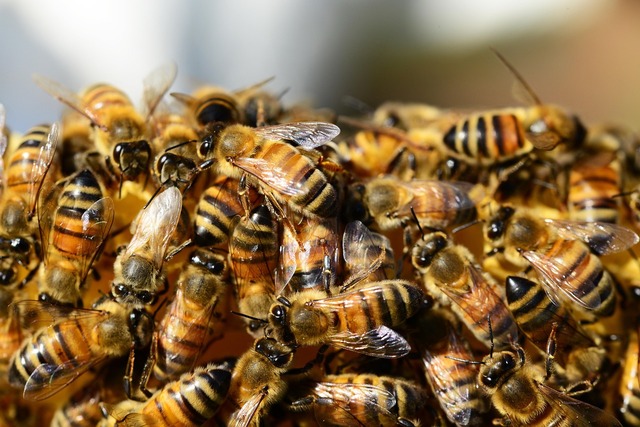Honeybees Are Having a Rough Year
Wednesday, September 3rd, 2025 -- 10:00 AM

(Joe Tarr, Wisconsin Public Radio) Honeybees are having a rough year.
According to Joe Tarr with the Wisconsin Public Radio, threats like mites, diseases, hunger and pesticides could wipe out up to 70 percent of honeybee colonies across the country.
But unlike natural pollinators that face similar threats, honeybees have people helping them out. “Honeybees are like livestock,” Hannah Gaines Day, a University of Wisconsin-Madison researcher who studies how pollinators interact with the environment and agricultural operations, told WPR’s “Wisconsin Today.”
“They’re like little, tiny livestock that the beekeeper is taking care of, and so they have someone looking out for them and feeding them and giving them medicine if they need it if they’re sick. But the wild pollinators don’t have that.”
Gaines Day said that hive losses in Wisconsin vary widely among commercial and hobby beekeepers. The insects are facing four main threats, she said, or the “four P’s”: pests, pathogens, poor nutrition and pesticides.
“We have the Varroa mite, which was introduced to the United States in the 1990s, and that’s the main pest of honeybees. They transmit many viruses,” she said.
“Poor nutrition has to do with what flowers they’re able to get on the landscape. So, modern agricultural landscapes look a lot different from historical landscapes, and today we have a lot fewer flowers out there for the bees to visit and collect upon.”
“And then finally, a lot of bees are encountering pesticides in the landscapes, and that can have lots of detrimental effects for the bees, both death and also just sublethal effects, how they can learn or navigate,” she added.
Many honeybees in Wisconsin are part of agricultural operations that are shipped around the country to pollinate crops as needed. But other colonies are kept by hobby beekeepers and remain year-round in Wisconsin.
Joe Bessetti, president of the Dane County Beekeepers Association, told “Wisconsin Today” that he’s also noticed the effects of mites, diseases and poor nutrition on the hives that he’s kept.
Poor nutrition is particularly noticeable during dry summers. “When we have a nice, wet summer and the fall flowering plants do well, I always see an uptick in survivorship and strength in my colonies during winter,” Bessetti said.
“But when we have a four-to-six week period of really dry weather in the middle of summer, like we sometimes get July through August, it really makes it hard for the bees to get good nutrition because those fall blooming plants just didn’t get what they needed. So, it’s a domino effect.”
Feel free to contact us with questions and/or comments.




